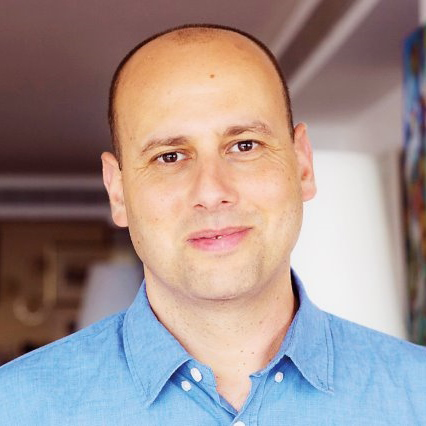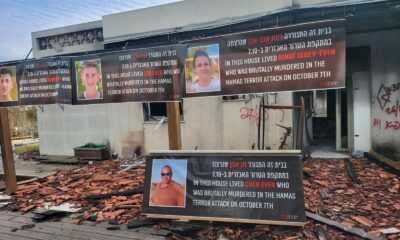
Israel

Let my people in – how Israel slammed the door on diaspora Jews
Published
2 years agoon
In the face of the COVID-19 pandemic, Israel chose to prevent the entry of foreigners including our brothers and sisters, the members of Jewish communities, into the country.
So, many couldn’t attend a family Barmitzvah or be with family to sit shiva for a loved one. Although the ban has mostly been lifted, the damage has been done. However, Israel could change its policy before the next wave of COVID-19 (G-d forbid) to prevent exacerbating the problem.
The state of Israel is strengthening and growing, while many diaspora Jewish communities are shrinking and declining. For a generation that grew up in Israel, it’s difficult to internalise that there are many Jews living in the diaspora who actually believe Israel is their second home.
There is a sense of belonging not only in a spiritual, deep, or biblical way. These Jews don’t necessarily plan to make aliyah to Israel in the future. They have a good life in their countries. Yet they believe they have another home, a true motherland.
In some cases, this may be because they have family in Israel. They might even have a son who is a lone soldier serving in the Israel Defense Forces (IDF).
These same Jews, who live thousands of miles from Israel, go to shuls on Shabbat and pray every week for the well-being of Israel and its soldiers.
These Jews are loyal to their birthplace countries though they have another home that they care about. They’re interested in everything going on in Israel. They get upset about any criticism of Israel. They defend the Jewish state in every social-media post and stand by our country in any discussion or argument. They attend rallies in support of Israel, and send donations whenever they can.
These are Jews who visit Israel on holiday and send their children to study there or on various educational and gap-year programmes. These are our Jewish brothers and sisters, who share our homeland even without an Israeli passport.
Facing the COVID-19 pandemic, Israel opted for a strict policy of intermittently blockading its borders. This right cannot be challenged. The policy of giving preferential treatment to its citizens – those who live in Israel – sounds reasonable.
Although in the past few days Israel was reopened to vaccinated people, we cannot ignore the suffering and frustration of blood brothers within Jewish communities.
We also have to prepare for the possible next wave, when Israel will again close its borders and Jews will again feel locked out from the Holy Land. Or will it be different? Will it have learnt a lesson and change the rules for certain people?
In the recent period when South Africa was red-listed, a South African family who came to comfort the mourners of terror victim Eli Kay was denied entry into Israel.
A grandmother who so wanted to be at her granddaughter’s wedding was denied entry. She can fly in now, but the wedding is long over.
A South African father couldn’t attend his Israeli son’s Barmitzvah.
A South African mother of one of the olot chadashot (new women emigrants) wasn’t able to be there for her daughter when she gave birth. This was a once-in-a-lifetime event that she missed. She can go there now, but the moment has passed.
A mother was delayed in being there for the urgent surgery for her daughter, who suffered a stroke in Israel.
A son couldn’t support his father on his deathbed. Fortunately, his request to be at the funeral was granted, but he will never be able to say those last words to his dying father.
A student who was on her way to start her university studies in Israel was sent home.
Israeli consulates around the world received instructions, and these were frequently changed, which only elevated the level of tension and confusion.
Contacting Knesset members influenced the discretion of the decision-makers and opened their hearts and the gates of the Holy Land. A few more days, more pressure, more discussions, and more letters created a bit more relief, reducing restrictions.
But it was too late for most people. They missed lifetime opportunities.
The special committees for exceptional cases collapsed under the pressure of the large number of applications, including those whose affinity to Israel is easy to prove. These people aren’t casual tourists who wanted to come on a holiday in the middle of a pandemic. They have family in Israel – first-degree relatives. Their foreign passport is packed with entry stamps to Israel. They had a one-time family special event, which has now passed.
After two years of coronavirus, it’s not too late to design regulations that apply to this group of people who knock on Israel’s doors. They’re willing to go through every test and isolation, any vaccination, as well as hotel costs just to be able to be allowed into Israel, their other home.
After the devastating tsunami of Omicron in Israel, we’ll hopefully have enough time to be prepared for the next cycle and set new rules – not an exhausting exceptions committee.
Don’t get me wrong, according to Israelis, Israel made no mistake in shutting its borders. They agree with the clear and transparent policy to minimise at all costs the importing of COVID-19 into Israel.
However, Israel needs to hear the voices of Jewish communities and consider future steps to avoid its conduct causing unnecessary frustration within world Jewry.
The stubbornness and procrastination in response to humanitarian requests have had a deep impact on those Jewish communities that believe Israel is also their home. Israelis have successfully managed to prove to their diaspora brothers and sisters on a daily basis how wrong they are.
Jewish communities are still Israel’s “home front” and defenders, who have ancestral rights to the establishment of the state of Israel. They also play a role in strengthening the country and in the ongoing moral justification for Israel’s existence. It was in their faces that Israel slammed the door.
Israelis don’t understand how much the arrogant, bureaucratic process can hurt a lonely soldier who needs to go to South Africa. He might be serving in integral and powerful units in the IDF, and is then refused the right to go and see his family. This is unacceptable.
It’s such an unnecessary but deep and painful hurt, yet very simple to heal with some care and kind attention. Our leaders need to consider this going forward.
- Advocate Zvika (Biko) Arran is a social entrepreneur. He lives in South Africa with his wife, Liat, who is the Jewish Agency representative in South Africa, and their children.











Eli
Jan 13, 2022 at 2:26 pm
I agree with the State of Israel. I took offence that our Chief Rabbi wrote a piece about this. He is entitled to his opinion, but when he saw fit to close SA shuls, to protect our community we all agreed even if it meant no kadish, no barmitzvah etc. Now the State of Israel does the same to protect its community and we stand and shout. What nonsense. Israel is 100% responsible to protect its citizens and 100% entitled do that. We wish our government had the guts to close our borders etc and protect us.